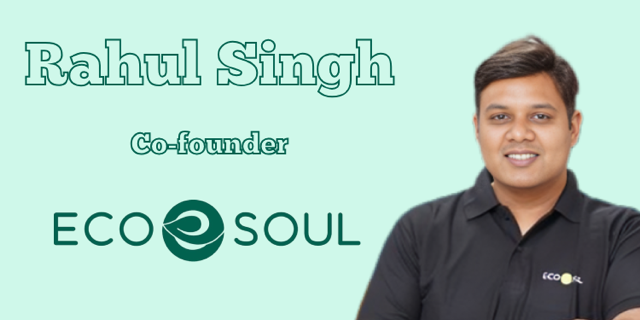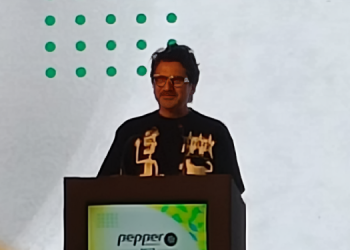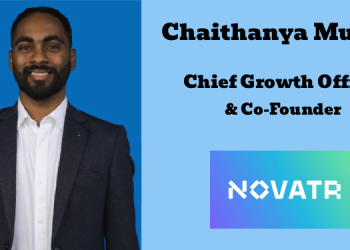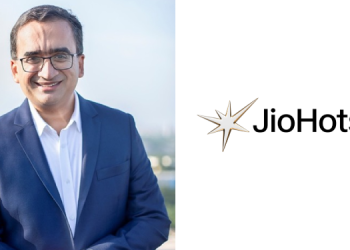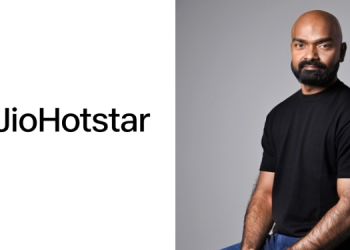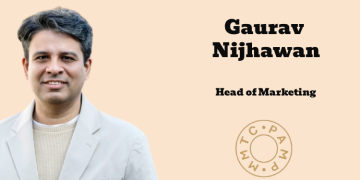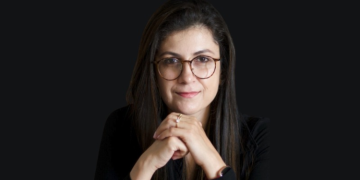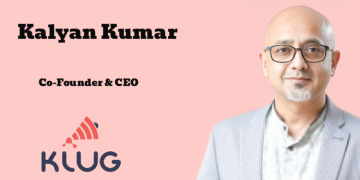In a world increasingly aware of the environmental impact of everyday products, EcoSoul Home has emerged as a leader in providing eco-friendly home essentials. Co-founded by Rahul Singh and Arvind Ganeshan, EcoSoul Home is on a mission to challenge the dominance of plastic and tree-based products in the home essentials market. The brand has quickly expanded its reach, offering a sustainable alternative to conventional products across the globe.
In conversation with Medianews4u, Rahul Singh, Co-founder, EcoSoul Home Inc spoke about the brand journey, consumer behavior, and more.
The brand journey
“While creating sustainable product categories at Wayfair in New York, Ganeshan and I discovered the big demand for eco-friendly products,” Singh recounts. “The question we had was whether there is a sustainable category that we can create. As part of the research, we observed a few things. There is a category within C2G which we call home essentials like plates, cutlery, napkins, cups, etc. We observed that all of them are either made of plastic or made of tree waste products. We also realized that though it is a huge market, there is no challenger brand doing the job of challenging plastics in terms of affordability and availability.“
EcoSoul was born out of a desire to create a global brand that addresses these challenges. “It was also about our legacy,” Singh continues. “We all speak about the adverse effects of single-use plastics, but is there any company that is totally solving the issue? There are companies on a regional level but very few on the global level—hence the brand EcoSoul was born. Today, EcoSoul is available in more than 10,000 stores worldwide with an equally large e-commerce business. There is no other company in the world which has the reach like EcoSoul; we are truly having a war against plastic.“
Evolution and milestones
Since its inception, EcoSoul has expanded significantly. “We started with around 35 SKUs and focused on tableware when we started off. Today we have more than 1800 SKUs,” Singh notes. “From one product category and four products and 35 SKUs, today we have six product categories like tableware, party ware, dinnerware, personal and home care, etc. From four products, we expanded to 43 products and 35 SKUs, and we expanded to 1800 SKUs.”
The brand’s geographical reach has also grown. “We started from the US e-commerce as our base market. Today, we are available on e-commerce platforms all over the world. We are available in the regional stores of more than seven countries. In terms of revenue, we grew 1800% in the last couple of years. Every month, we are adding one or two geographies as the market for the brand. We are launching in France very soon.“
Understanding consumer behavior
EcoSoul has noted significant differences in consumer behavior between Western markets and India. “The Western markets are more developed. There are big brands we compete against like Hefty, Solo, etc., which are billion-dollar brands built in the category. If you think of this category in India, we rarely see any brand. It is an unorganized market in India, whereas in Western countries like the USA, it is an organized market,”Singh explains. “What we are trying from our part is that we are truly doing a brand-building effort. Today, you search for disposable plates online, and from top to bottom, almost 70% of the listings come from EcoSoul, and hardly one or two would be sponsored listings; the rest everything is organic.”
On quality assurance
Across its product lines, EcoSoul ensures consistent quality. “We don’t differentiate between the products that we sell in India and the Western markets. The quality of the products you get from India resonates exactly with the consumers in the Western countries. Every product we sell in India comes with every international certificate,” Singh highlights. “In addition to that, they get consistent quality products. What we also do is that every product of ours is not only going through quality check, we connect deeper with consumers. We combine all these together, EcoSoul stands out.“
Innovative materials and processes
EcoSoul’s products are set apart by their innovative materials and processes. “We have not only integrated into our production, but we are integrated all the way to raw materials. For example, when we make palm leaf products, we are integrated all the way to the plantations. Our factories are in Shimoga and Tumkur. We buy our leaves directly from the plantation and not from middlemen, hence cost can be kept very low. We do our own processing, which also offers cost advancement, and the quality and consistency is maintained,” Singh explains. “It is a combination of smart sourcing, smart production, and smart technology which gives us the edge in terms of affordability.”
Future innovations and sustainability initiatives
EcoSoul continues to innovate with a focus on sustainability. “Every time we consume toilet paper or napkins, every one large box of that paper product and one and a half trees get cut. Now multiply that with 5% of our population consuming toilet paper and napkins. That’s where we see the ability of ours to save trees. All our kitchen towels, toilet paper, napkins, etc. are made of agro-waste paper. That’s the first innovation we were able to do. India became the world leader in that. We are now developing flushable sanitary napkins.“
Commitment to community and future plans
EcoSoul is deeply committed to community empowerment. “More than 70% of our employees are women. The Shimoga factory of ours is run by women. We are committed to the communities we are part of. Since our launch, empowering women has been something close to our hearts. We proudly indulge in women-led operations throughout our supply chain. By sourcing our raw materials from places with limited opportunities, we also provide well-deserving compensation, free meals, and transportation to over 100+ women in rural India,” Singh proudly shares.
Looking ahead, EcoSoul aims to continue its growth and innovation. “The goal of EcoSoul is to continue bringing great products to the markets. We will continue to invest in the R&D side. Our expansion plans will be on products that the world has never seen before—innovative products. Our other objective is geographic expansion. This year we are expanding to countries like France, Spain, and Italy. Then, we will continue to deepen our commitment to our communities. We will find more rural areas where we can establish factories. We are looking at locations in Odisha, Chhattisgarh, etc.”
EcoSoul Home is not just a brand; it is a movement towards a more sustainable and eco-friendly future, making a significant impact on the global market and local communities alike.

